Atula Tejaswi Neerkaje
How Much User Context Do We Need? Privacy by Design in Mental Health NLP Application
Sep 05, 2022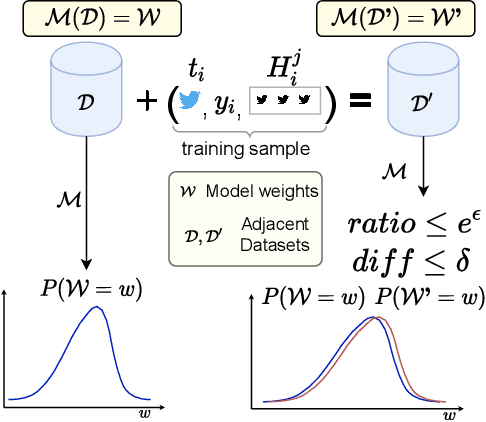
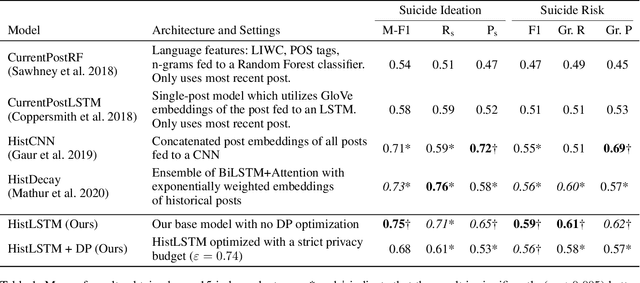
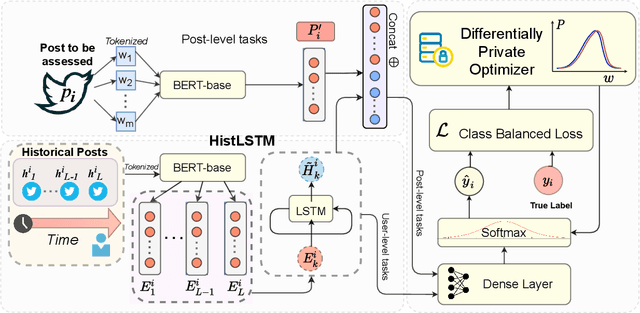

Abstract:Clinical NLP tasks such as mental health assessment from text, must take social constraints into account - the performance maximization must be constrained by the utmost importance of guaranteeing privacy of user data. Consumer protection regulations, such as GDPR, generally handle privacy by restricting data availability, such as requiring to limit user data to 'what is necessary' for a given purpose. In this work, we reason that providing stricter formal privacy guarantees, while increasing the volume of user data in the model, in most cases increases benefit for all parties involved, especially for the user. We demonstrate our arguments on two existing suicide risk assessment datasets of Twitter and Reddit posts. We present the first analysis juxtaposing user history length and differential privacy budgets and elaborate how modeling additional user context enables utility preservation while maintaining acceptable user privacy guarantees.
The Impact of Differential Privacy on Group Disparity Mitigation
Mar 05, 2022
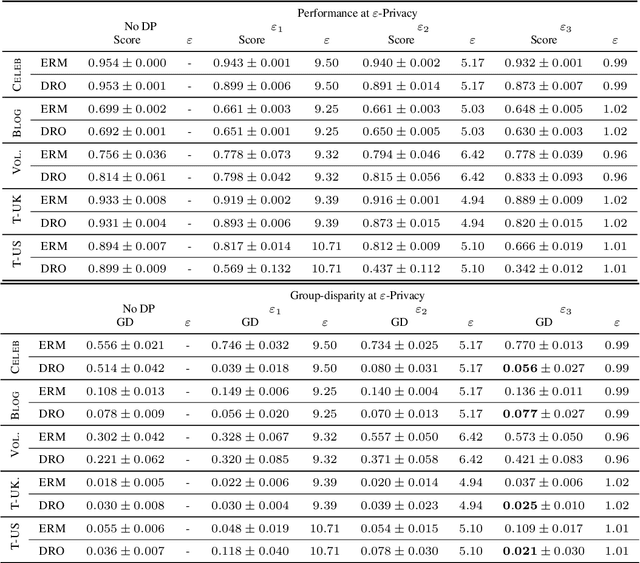
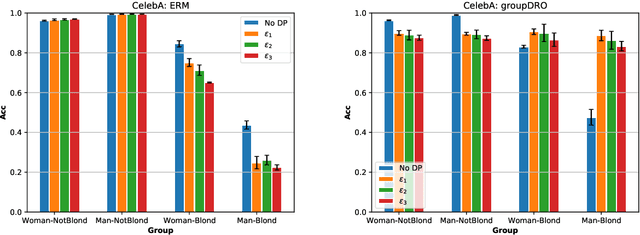
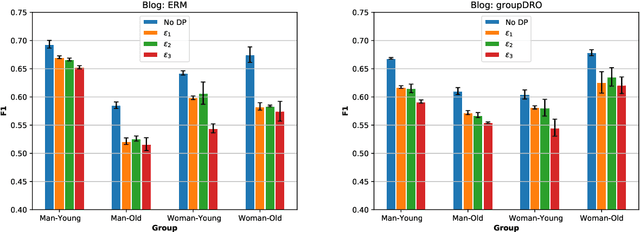
Abstract:The performance cost of differential privacy has, for some applications, been shown to be higher for minority groups; fairness, conversely, has been shown to disproportionally compromise the privacy of members of such groups. Most work in this area has been restricted to computer vision and risk assessment. In this paper, we evaluate the impact of differential privacy on fairness across four tasks, focusing on how attempts to mitigate privacy violations and between-group performance differences interact: Does privacy inhibit attempts to ensure fairness? To this end, we train $(\varepsilon,\delta)$-differentially private models with empirical risk minimization and group distributionally robust training objectives. Consistent with previous findings, we find that differential privacy increases between-group performance differences in the baseline setting; but more interestingly, differential privacy reduces between-group performance differences in the robust setting. We explain this by reinterpreting differential privacy as regularization.
 Add to Chrome
Add to Chrome Add to Firefox
Add to Firefox Add to Edge
Add to Edge